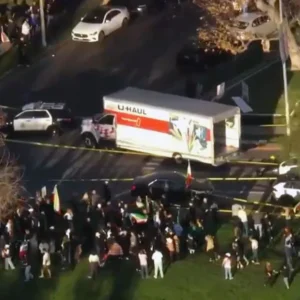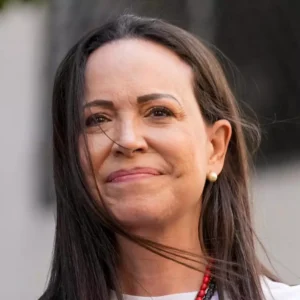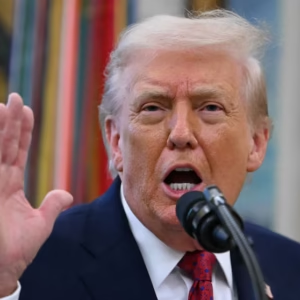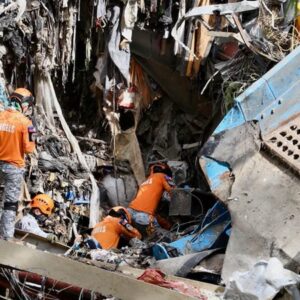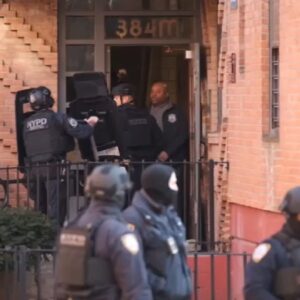The shocking case of an American killed in the West Bank has thrust a small Palestinian town into the global spotlight. Sayfollah “Saif” Musallet—a 20-year-old entrepreneur from Tampa, Florida—was allegedly beaten to death by a group of Israeli settlers while defending his family’s land in Sinjil, north of Ramallah. He is the fifth American killed in the West Bank since the Israel-Hamas war erupted on Oct. 7, 2023.
American Killed in West Bank: The Sinjil Confrontation
According to the Palestinian Health Ministry and multiple eyewitness accounts, settlers surrounded Musallet for more than three hours on July 11, blocking ambulances while hurling rocks and blows. A second Palestinian man, 23-year-old Hussein al-Shalabi, was shot dead in the same incident.
Israeli forces say a “violent confrontation” began after Palestinians threw stones at settlers, sparking clashes that included arson, vandalism, and rock-throwing. The Israel Defense Forces (IDF) confirmed it is “aware of reports regarding a Palestinian civilian killed” and has opened a joint probe with police and the Shin Bet security agency.
Timeline (local time)
- 5:30 p.m. – Settlers enter family farmland, confrontation spreads.
- 8:00 p.m. – Ambulance attempts blocked; Musallet beaten, al-Shalabi shot.
- 9:10 p.m. – IDF and police arrive; settlers withdraw.
- 10:00 p.m. – Musallet pronounced dead en route to hospital.
Who Was Sayfollah Musallet?
The Florida-born businessman launched a small logistics company in Tampa and spent summers in the West Bank with his mother. Relatives describe him as “kind, ambitious, and deeply connected to his roots.” He flew to Sinjil on June 4 with plans to help harvest the family’s olive groves.
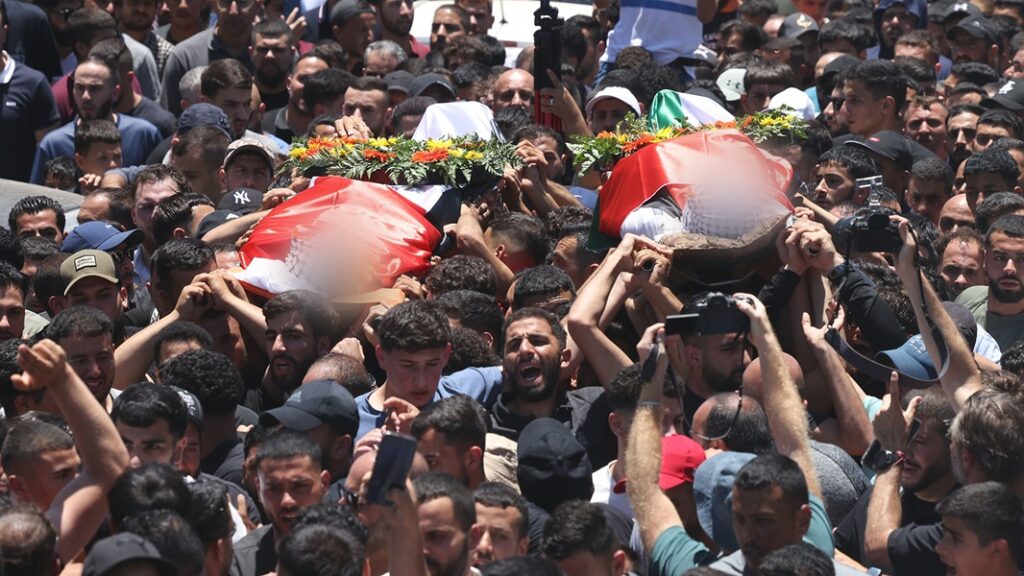
“Saif worked tirelessly to build his dreams,” the family said in a statement. “He was protecting what generations before him had cultivated.”
Settler Violence on the Rise
International monitors, including the United Nations, warn that attacks by Israeli settlers have quadrupled since late 2023. Rights groups blame inadequate law enforcement, while Israeli officials cite security threats.
In Sinjil alone, locals recount dozens of recent incidents involving damage to crops, torching of cars, and stone-throwing. Residents say new settler outposts—often erected without formal permits—have squeezed traditional grazing lands and access roads, some of which are blocked by concrete barriers.
U.S. and Israeli Responses
The U.S. State Department confirmed Musallet’s death but, citing privacy rules, offered no details. Privately, diplomats say they have requested a “transparent, credible” investigation.
Israel’s National Security Minister said that while settlers have a right to self-defense, “vigilantism cannot replace the rule of law.” Yet critics point to what they call a pattern of impunity: only a handful of settler-on-Palestinian killings have led to indictments in the past decade.
Diplomatic Friction and Funding Gridlock
Calls for accountability face headwinds in Washington, where partisan wrangling over foreign-aid conditions mirrors the broader FEC deadlock that has paralyzed campaign-finance oversight. Congressional hawks warn that attaching human-rights strings to Israel aid could weaken a key ally, while others argue that unchecked funding enables abuses—echoing debates over How Super PACs work and influence U.S. policy.
Legal Pathways for Justice
Musallet’s family has retained counsel in Tampa and Ramallah. Under U.S. law, families of citizens killed abroad may seek remedies through:
- Leahy Law reviews – cutting aid to foreign units credibly accused of rights violations.
- Global Magnitsky sanctions – targeting individuals involved in gross abuses.
- Civil actions in U.S. federal courts under the Torture Victim Protection Act.
Obstacles Ahead
- Jurisdictional complexity – The West Bank’s mixed civil-military legal regime complicates evidence gathering.
- Political sensitivities – High-profile cases risk diplomatic fallout at a time when U.S.-Israel security coordination is central to regional deterrence.
- Security concerns – Witnesses may face intimidation, hindering testimony.
Broader Human Impact
Since Oct. 7, 2023, four other Americans—Tawfic Abdel Jabbar (17), Mohammad Alkhdour (17), Aysenur Eygi (26), and Amer Rabee (14)—have died in the West Bank. Palestinian officials say civilian casualties climb as settlers expand enclaves and the Israeli army conducts near-daily raids.
Human-rights advocates fear Musallet’s death will fuel anger toward Washington among Palestinian Americans, many of whom feel abandoned by their own government.
AI Manipulation: What My Failed Podcast Taught Me About Trust and Transparency
What Comes Next?
- Autopsy and forensic review – Palestinian pathologists completed a preliminary report; Israel has requested joint access.
- U.S. Embassy delegation – Expected in Ramallah this week to meet the Musallet family.
- Potential arrests – Israeli police say suspects have been identified but not yet detained.
How to Protect U.S. Citizens Abroad
The State Department urges Americans in the West Bank to enroll in the Smart Traveler Enrollment Program (STEP), maintain contact with local authorities, and avoid areas near settler outposts, especially after dark.
Conclusion: A Test of Accountability
The killing of yet another American in the West Bank exposes the widening gulf between U.S. assurances of citizen safety and the stark reality on the ground. As Saif Musallet’s family grieves, the world watches to see whether perpetrators will face justice, or whether this tragedy will fade into the long ledger of unresolved violence.
